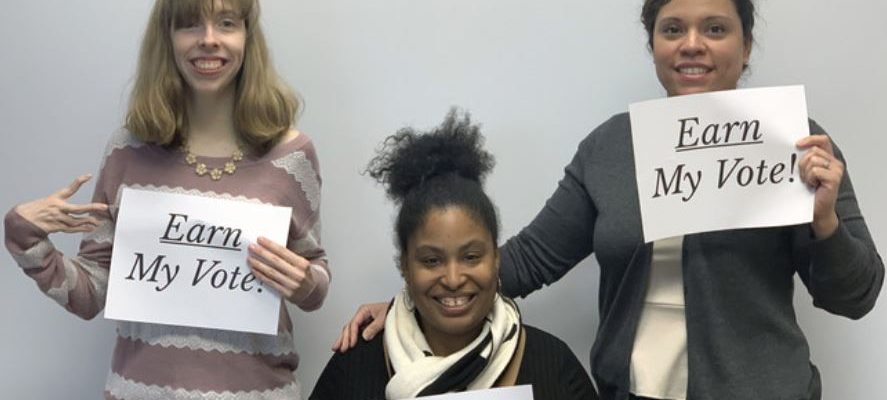WASHINGTON, Feb. 1, 2020 — As people prepare to vote, the disability rights nonprofit RespectAbility has released its first edition of the National Disability Voter Guide. While primary elections do not begin until February, early voting has begun in many localities. Early voting gives voters with and without disabilities flexibility and options before primary day.
RespectAbility has invited all candidates in the presidential race on both sides of the aisle to submit answers to a 2020 Disability Voter Candidate Questionnaire. This questionnaire covers some of the most important issues impacting people with disabilities including employment, education, immigration, criminal justice and accessibility.
Several high-profile candidates recently submitted responses:
Their plans reflect an understanding of the seriousness of these issues. All responses will be posted in full on The RespectAbility Report as they come in and be used to produce and update nonpartisan voter guides in every state.
Research conducted in 2018 shows that 74 percent of likely voters either have a disability themselves or a family member / close friend with disabilities. The upcoming elections and their results will impact people with disabilities, so it is important to become familiar with candidates’ positions.
A Focus on Employment
According to the 2018 Annual Disability Statistics Compendium, there are 20,444,249 working-age (ages 18-64) people with disabilities in the U.S. Just 7,572,805 have jobs.
“Stigma is still a driving factor in why two-thirds of people with disabilities are unemployed,” said RespectAbility’s VP Lauren Appelbaum, who also is the managing editor of The RespectAbility Report, an online publication at the intersection of disability and politics. “There is no better way to disprove that idea than by presidential candidates including people with disabilities in their campaigns as staffers and consultants, as well as by ensuring they have well-thought-out disability policy plans.”
“The disability community is unique,” added Philip Kahn-Pauli, associate editor of The RespectAbility Report. “It is the only minority group anyone can join at any time due to illness, injury or aging. People with disabilities live in every state, and the community’s interests intersect with so many issues, including race, gender, poverty, criminal justice and inequality.”
According to a Rutgers University study, 14.3 million citizens with disabilities voted in 2018. Those voters will be crucial as candidates vie for the presidency, as well as down-ballot elections.

